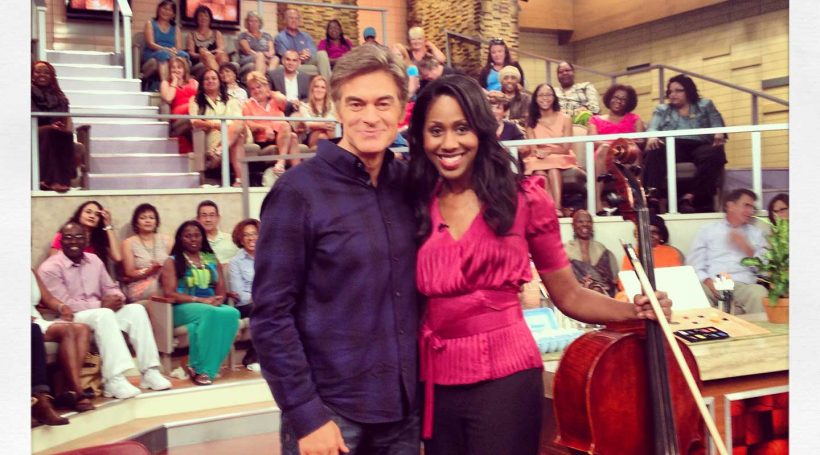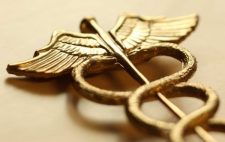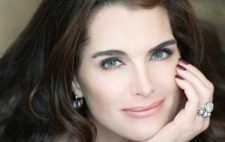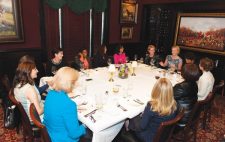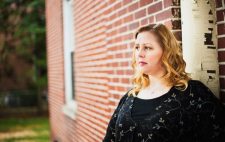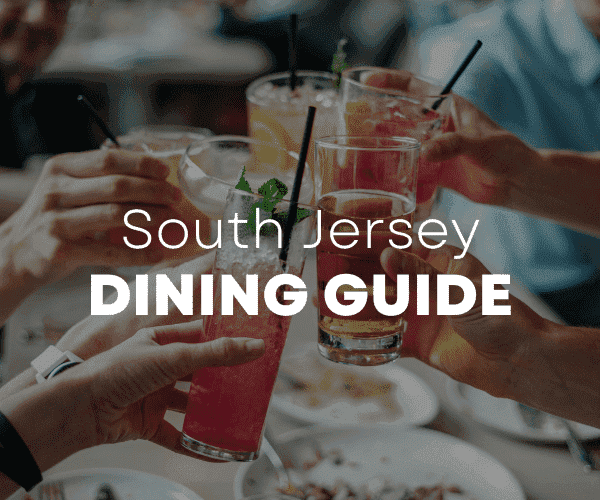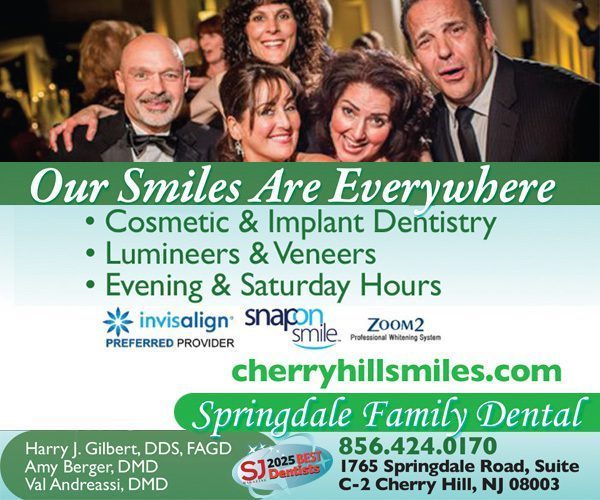Jennifer Caudle, DO, is a self-professed health-information junkie – and she likes nothing better than dispensing that knowledge across the airwaves. The 36-year-old RowanSOM family medicine physician frequently offers advice on everything from pink eye to cancer on programs like CBS3 News, “HuffPost Live” and “The Dr. Oz Show.”
What do you like about being on TV?
I love the education aspect. I’m just fascinated by health facts and health tidbits, and the day-to-day things that people are curious about, like does the flu shot give you the flu? Will you really get acne if you eat greasy foods? I’m the doctor who deals with those questions in the office, and I love answering those questions on TV. It’s also great because I get to interact with people throughout the world who see my segments and have comments or questions on social media.
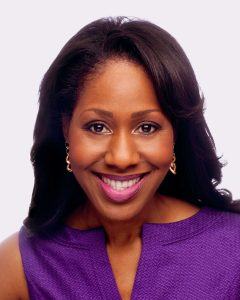
Do you ever get nervous before going on air?
It feels very comfortable, for reasons I don’t really understand. I get to interact with the anchors and the crew so it’s almost like I’m getting to have a conversation, which is what I’m doing with people every day in my office. It feels very natural. There is a lot of preparation that goes into it, which helps. I read through notes, I memorize facts. I think of how I want to phrase things. For me, it’s a little bit like school when I’m preparing for segments.
How do you deal with TV viewers who might not agree with your medical advice?
Anyone who puts themselves out there like I have receives criticism. There tend to be hot topics – vaccines are a big one. I always get criticism, and sometimes I even get hate mail or “nastygrams” on social media. Sometimes it’s hard to swallow, but it’s an important part of being out there. I work very hard to make sure everything I say on the news is evidence-based, meaning I’m giving facts to the best of our medical knowledge. It’s not personal – when I’m giving information, it’s the best information that we have at that time, but that doesn’t mean people always agree with it.
What’s your best health advice for women?
First, listen to your body, know your body and know when something seems different. Second, see a doctor you trust and feel you can talk to, because without both of those things, healthcare is not as good as it can be. If you don’t like your doctor, fire them. I’ve said it on air, because I really believe it. If you don’t feel like you can talk to your doctor, you don’t feel like they listen to you or you don’t feel like you’re getting the help you deserve or need, find someone else. Be particular. The doctor-patient relationship really is a relationship – in order for it to work, there has to be openness, and both parties have to feel comfortable.
Why did you choose to specialize in family medicine?
I love the fact that every patient who comes into my office has something different they want to talk about. If I only dealt with the heart, the lungs or the kidneys, I’d be bored. I get to talk to people every day, and I know their families and their lives. I know who just had a baby. I know who just got a new dog and who just bought a new house. I know who’s in jail and who lost their job. I know everything about people, and that really matters, because I think you can’t effectively treat people unless you know all the things that are weighing into their lives.
Did you always want to be a doctor?
I was born and raised in Iowa and from a young age, my dream was to have a career in music. Music was big in my household. My mother was a music teacher in Gary, Indiana. She was actually the music teacher for Michael Jackson and some of his brothers when they were growing up. She sings, and my father plays the trumpet.
I started out playing the piano, and then I picked up the cello and then the French horn. I was doing all three for a number of years, until I whittled it down to the piano and cello. I wanted to pursue music more seriously, the cello in particular, and I found out about the New England Conservatory of Music Preparatory School outside of Boston. It was my idea to audition there, and thankfully my parents were supportive.
How did you get from music to medicine?
As I was getting closer to graduating high school, I realized I liked science and math. I auditioned at some music conservatories and got into them, and I also applied to and got into colleges. For me, that felt like a fork in the road. I chose to go to Princeton as opposed to a music conservatory. It was bittersweet because I was giving up music to some degree, but I also felt I was gaining a well-rounded liberal arts education. I think that’s what I wanted at that point. That was a big time in my life. I’m very happy with the decision I made, and I still played music very seriously at Princeton.
How has your background in music benefitted your medical career?
When I was in high school, I commonly sat and practiced four, six, even eight hours a day. I think that has helped me because the discipline to sit and keep working at something until the job gets done is something I’ve been practicing since I was very little.
You were named Miss Iowa and competed in the Miss America Pageant when you were still a college student. How did you get involved in pageants?
I never planned to be in pageants; my first one was when I was 20 years old. I was a student at Princeton at the time, and I had gone back to Iowa for Easter break. One of the women at my church was on the board of the local pageant, the Miss Scott County Pageant. She approached me because she knew I played the cello, and you need to have a talent to participate in the Miss America system. I remember thinking, “Is she serious? She can’t be talking to me.” I’ve always been kind of a nerd and a brainiac and a little awkward at times – I have no problem admitting that. So when she came up to me, I didn’t think of myself as a “pageant girl” – I didn’t think that could be me.
But I learned the Miss America Pageant is the world’s largest scholarship organization for women, and I needed that money to pay for college. Before that, I worked in the dining services at Princeton, I delivered newspapers, I worked in the music department. I did all these odd jobs to help my parents pay for my education.
It was a chance to win scholarship money, so I went through with it.
How do you juggle a television career and a medical practice?
I’m not even going to pretend that it’s easy. Trying to stay balanced and handle all the things I have to do is difficult. Every day, I have to be conscious about what I’m doing and ask myself, “Am I doing too much?” and figure out what I can cut back on and try to make time for myself. I’m not always successful, honestly.
I find a lot of peace in going for walks outside. Even if it’s walking a few extra blocks outside when I have to go the pharmacy, that little bit of fresh air helps clear my mind. I’m also very close to my family. That helps me – people who are good for me and are supportive and that I can talk to give me that support system. Religion is also important to me and something I try to keep in the forefront of my mind. Those things and a mixture of fun – I like to go out to eat, I like to dance. I try to make sure there’s some of that smattered into my life in regular intervals.
And I love Sunday afternoon naps. I’ve come to the point that I don’t apologize for them anymore. When other people are out being productive and going to the dry cleaners and stuff, I routinely get my pillow and my blanket, and I get on my couch because it’s something I love to do.

